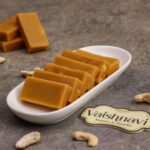1121 sella basmati rice is a highly sought-after variety of basmati rice known for its exceptional grain length, aroma, and cooking qualities. This premium rice variant has gained widespread popularity not only in domestic markets but also across the globe due to its superior attributes and versatility. As consumers increasingly prefer high-quality rice with consistent performance, the demand for 1121 sella basmati rice continues to rise steadily.
This article explores the unique characteristics of 1121 sella basmati rice, its production and processing methods, key benefits, and its growing role in the international rice trade.
What is 1121 Sella Basmati Rice?
1121 basmati rice is a specialized strain of basmati rice recognized for its extra-long grain size—one of the longest among all basmati types. When parboiled, it becomes 1121 sella basmati rice. The term “sella” refers to the parboiling process where rice is soaked, steamed, and dried before milling. This method locks in nutrients, enhances grain firmness, and imparts a distinctive golden color to the rice.
The combination of the 1121 strain with the sella process results in rice that is not only visually appealing but also rich in texture, taste, and nutritional value.
Key Features of 1121 Sella Basmati Rice
- Extra-Long Grains: The hallmark of 1121 sella basmati rice is its extraordinary grain length, which elongates further after cooking, giving dishes a premium appearance.
- Golden Amber Color: The parboiling process gives the rice a unique golden or amber hue, distinguishing it from regular white basmati rice.
- Non-Sticky Texture: The rice cooks to fluffy, separate grains that are ideal for biryanis, pulaos, and other delicately spiced dishes.
- Enhanced Nutritional Profile: Parboiling drives vitamins and minerals from the bran into the endosperm, increasing the nutritional content compared to standard white rice.
- Longer Shelf Life: The processing reduces moisture and microbial growth, which helps the rice stay fresh for extended periods.
- Reduced Grain Breakage: The grains are firmer and less prone to breaking during milling and cooking, improving overall yield and consumer satisfaction.
Production and Processing of 1121 Sella Basmati Rice
The production of 1121 sella basmati rice starts with cultivating the premium 1121 basmati strain, primarily grown in northern India, especially in Punjab, Haryana, and parts of Uttar Pradesh. The rice is harvested and then undergoes the parboiling process in specialized units.
Parboiling involves three stages:
- Soaking: Raw paddy rice is soaked in water to increase moisture content.
- Steaming: The soaked rice is steamed under controlled conditions to gelatinize the starch and drive nutrients inward.
- Drying: The rice is dried to suitable moisture levels before milling.
This process not only enhances quality but also preserves the natural aroma and texture of 1121 basmati rice.
Why Choose 1121 Sella Basmati Rice?
The demand for 1121 sella basmati rice is driven by several factors that appeal to both consumers and businesses:
- Superior Cooking Performance: Chefs and home cooks prefer this rice for its ability to retain shape and texture even when cooked in elaborate dishes.
- Health Benefits: The enhanced nutrient profile makes it a better choice for health-conscious consumers.
- Visual Appeal: The long, golden grains add elegance to dishes, making them suitable for festive and special occasions.
- Economic Advantage: Reduced grain breakage and longer shelf life mean less wastage and better profitability for sellers and buyers.
- Versatility: It can be used for various culinary styles, including Indian, Middle Eastern, and international cuisines.
Global Demand and Export Potential
1121 sella basmati rice enjoys strong demand in key international markets such as the Middle East, Europe, North America, and Africa. These regions have large expatriate populations and consumers who appreciate authentic basmati rice quality.
The Middle East, in particular, is a significant market where 1121 sella basmati rice is used extensively in traditional dishes like biryani, kabsa, and other rice-based delicacies. The rice’s aroma and texture perfectly complement these rich recipes.
European countries, including the UK and Germany, have witnessed a rise in demand as consumers become more adventurous with global cuisines. Meanwhile, North America has a growing South Asian and Middle Eastern community that values 1121 sella basmati rice for home cooking and restaurants.
Selecting Quality Suppliers for 1121 Sella Basmati Rice
For importers and wholesalers, choosing reliable suppliers is crucial to ensuring consistent quality and timely deliveries. Key factors to consider include:
- Source Authenticity: Verified sourcing from regions known for premium 1121 basmati cultivation.
- Processing Standards: Suppliers that follow stringent parboiling and milling practices to maintain grain quality.
- Certifications: Compliance with international food safety and quality standards such as ISO, HACCP, and FSSAI.
- Packaging and Logistics: Availability of customized packaging options and efficient export logistics to ensure freshness upon arrival.
- Customer Service: Responsive communication and support to address any issues promptly.
Sustainability and Future Trends
The rice industry is gradually moving toward more sustainable and environmentally friendly practices. Many producers and suppliers of 1121 sella basmati rice are adopting organic farming methods, water-saving irrigation techniques, and eco-friendly packaging solutions to meet the growing consumer demand for sustainability.
Additionally, advancements in supply chain transparency allow buyers to trace the rice back to its farm of origin, enhancing trust and promoting ethical sourcing.
Conclusion
1121 sella basmati rice stands out as a premium product that combines the best features of the 1121 basmati strain with the benefits of parboiling. Its superior grain length, aroma, texture, and nutritional advantages make it a favorite among consumers and chefs worldwide.
As global demand continues to grow, businesses involved in the import, distribution, and retail of rice must focus on sourcing high-quality 1121 sella basmati rice from reputable suppliers. By doing so, they can capitalize on this lucrative market and deliver exceptional value to their customers.
Whether for preparing traditional biryanis or modern rice dishes, 1121 sella basmati rice remains a symbol of quality, authenticity, and culinary excellence.
- Premium 1121 Sella Basmati Rice: Quality & Global Demand
- This article explores the unique characteristics of 1121 sella basmati rice, its production and processing methods, key benefits, and its growing role in the international rice trade.
- 1121 sella basmati rice
Related posts:
 Discover Why Custom Greaseproof Paper Is Changing Food Packaging Forever
Discover Why Custom Greaseproof Paper Is Changing Food Packaging Forever
 How Custom Fast Food Boxes Are Making Packaging More Impactful Today
How Custom Fast Food Boxes Are Making Packaging More Impactful Today
 Custom CBD Oil Boxes: Why They’re Essential for Building Your Brand
Custom CBD Oil Boxes: Why They’re Essential for Building Your Brand
 Boost Your Business with Custom Printed Fish and Chip Paper Today
Boost Your Business with Custom Printed Fish and Chip Paper Today
 Discover the Benefits of Custom Heat Seal Paper for Your Business
Discover the Benefits of Custom Heat Seal Paper for Your Business
 The best South Indian Sweets Online, we bring our heritage taste to your doorstep. Now delivering across India
The best South Indian Sweets Online, we bring our heritage taste to your doorstep. Now delivering across India
 Maximize Product Perception Using Premium Custom Glassine Paper
Maximize Product Perception Using Premium Custom Glassine Paper
 Kitch: Mystic Village’s Premier Kitchen Store and Mixology Experience
Kitch: Mystic Village’s Premier Kitchen Store and Mixology Experience







